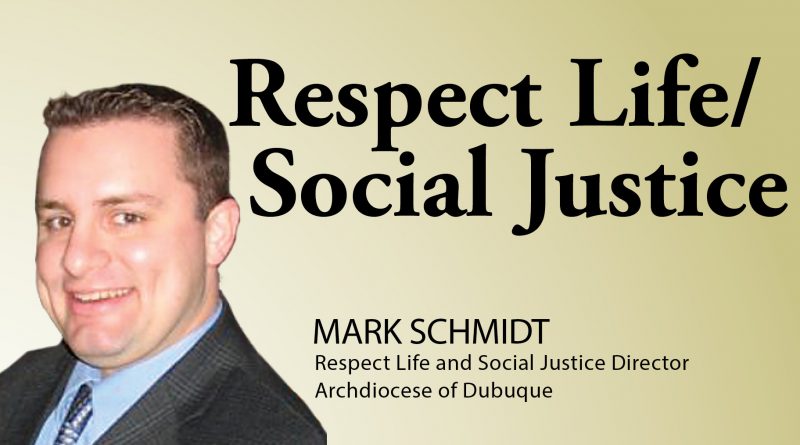‘Born-Alive’ act aims to protect babies who survive abortions
This is Part 2 in a series on abortion issues. Part 1 was published last week and is available at TheWitnessOnline.org.
The Born-Alive Abortion Survivors Protection Act (BAASPA) is a proposed piece of federal legislation that is a follow-up to a law that was passed in 2002, the Born-Alive Infants Protection Act of 2002, which was limited in scope, stating that any child born alive, whether naturally or after a failed abortion, is considered a person who shares all legal rights as any other person. This would mean that killing a child after a failed abortion where the child is born alive is legally no different than killing any other infant or person. Such killings are properly understood as infanticide, and this is currently illegal in the United States.
There are some criticisms of the 2002 law in that it did not specify what is required should an infant survive an abortion attempt. Nor does it specify criminal or civil penalties or any enforcement method to make sure that if a child is born alive following an attempted abortion there will be accountability for the act of denying appropriate medical care or for actively killing the newborn.
Thus the BAASPA of 2019 intends to build on that 2002 law by stating that a child born alive following an attempted abortion must receive certain medical care including admission to the hospital. The bill reads:
“(a) REQUIREMENTS FOR HEALTH CARE PRACTITIONERS.—In the case of an abortion or attempted abortion that results in a child born alive:
“(1) DEGREE OF CARE REQUIRED; IMMEDIATE ADMISSION TO A HOSPITAL.—Any health care practitioner present at the time the child is born alive shall—
“(A) exercise the same degree of professional skill, care, and diligence to preserve the life and health of the child as a reasonably diligent and conscientious health care practitioner would render to any other child born alive at the same gestational age; and
“(B) following the exercise of skill, care, and diligence required under subparagraph (A), ensure that the child born alive is immediately transported and admitted to a hospital.”
The bill also includes a section of mandatory reporting if such care is not provided as well as criminal and civil penalties for violation of the law.
As discussed last week, it is important for us to add facts and context to the discussion and debate on the efficacy, necessity and any potential concerns with passing such a piece of legislation. It is also important to avoid hyperbole and sensationalism as we have all likely seen from prominent elected officials and other public figures spanning the partisan spectrum.
We know for a fact that there are some children who survive abortions. There are several prominent activists who travel the country sharing their own story of being abortion survivors. Statistics from the Center for Disease Control as well as government reports from some states report the occurrence of children surviving abortions, being born alive. There are also reports from former abortion clinic workers of children surviving abortions. It is also a fact that there are cases in which children born alive were killed or left to die unattended by abortion workers; a most notorious example from the criminal case against Kermit Gosnell who was found guilty for killing three children born alive after failed abortions.
While the scope of how many children survive abortions is difficult to know with certainty, it is undeniable that it does happen. It is further difficult to determine how many children born alive received appropriate medical care, were denied appropriate medical care or were actively killed after birth. Though there are many attempts at speculation, the reliable numbers do not exist because poor reporting, or a complete lack thereof, prevents us from knowing the scope. Regardless, the scope does not determine the importance of this issue when we are speaking of the dignity of the human person and the fundamental right to life. Though some seek to use volume of incidences as a way to push for or against legislation, as Catholics, it is enough for us to know that one child death is one too many.
It is, therefore, an act of mercy and justice that proper protections are in place to ensure that in such instances appropriate medical care is provided to all newborns, whether it is just a few cases or thousands. That is the intent of BAASPA. Thus far, it has failed to get 60 votes to end debate in the United States Senate so that it can be brought to a yes-no vote. It has also yet to be brought to a vote in the United States House. A discharge petition to force a vote in the House is currently being promoted, encouraging legislators, even if they do not support the bill itself, to sign on to the petition so that it can be brought to a vote without requiring the Speaker of the House to place it on the calendar herself.
Next week will address what is considered “reasonably diligent” for care according to Catholic medical ethics and potential unintended consequences of this proposed bill.




